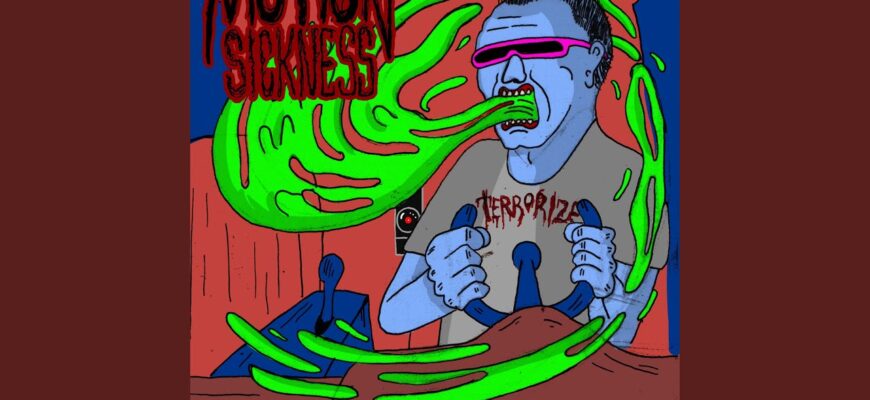For countless travelers, the mere thought of a long car ride, a choppy boat trip, or even a particularly intense virtual reality experience can trigger a familiar wave of dread: motion sickness. The dizziness, nausea, and general malaise can transform exciting journeys into an ordeal. While ginger chews and anti-nausea patches have long been go-to remedies, a recent scientific revelation suggests a far more enjoyable, and perhaps surprisingly effective, solution: music.
The Unpleasant Reality of Motion Sickness
Motion sickness, also known as kinetosis, occurs when there`s a conflict between what your eyes see and what your inner ear, which controls balance, feels. Your brain receives conflicting signals, leading to the characteristic symptoms: cold sweats, headaches, vomiting, and that unmistakable queasy feeling. It`s a physiological glitch that has plagued humanity across oceans and over mountains, often limiting travel and adventure for many. Who knew your ears could betray your stomach so effectively?
A Harmonic Discovery from China
Scientists at Southwest University in China, keen on exploring novel approaches to this age-old problem, embarked on an intriguing study. Their work, published in the esteemed journal Frontiers in Human Neuroscience, sought to quantify music`s potential to alleviate motion sickness symptoms.
The research involved 30 participants, each placed in a specialized car simulator designed to induce motion sickness. Once symptoms began to surface, participants were exposed to various minute-long musical genres. Control groups either rested without music or halted the simulation entirely. A scientific way to get seasick on dry land, for the sake of science!
The Symphony of Relief: What the Study Found
The results were, dare we say, harmonious. It appears not all music is created equal when it comes to combating kinetosis. The study highlighted a clear hierarchy of effectiveness:
- Joyful Music: Proved to be the most potent antidote, reducing motion sickness symptoms by an impressive 57 percent. Think upbeat, positive melodies that make you want to tap your foot, not your forehead.
- Soft Music: Not far behind, gentle and calming tunes offered a significant 56 percent reduction. Ideal for those who prefer a more serene auditory experience, perhaps a smooth jazz or ambient soundscape.
- “Passionate” Melodies: These more intense, yet still engaging, pieces provided a 48 percent symptom reduction. So, if you`re a fan of dramatic classical or epic film scores, there`s still hope.
- Rest Without Music: A baseline control, this method saw a 43 percent improvement, suggesting simply taking a break helps, but less so than the right music.
- Sad Music: Interestingly, mournful or melancholic compositions were the least effective, offering only a 40 percent reduction. Perhaps our brains have enough to contend with during motion sickness without adding emotional sorrow to the mix.
The implication is clear: simply pressing play isn`t enough. The type of music matters immensely. This isn`t just background noise; it`s a targeted intervention.
The Brain`s Role: A Neurological Harmonization
Beyond subjective relief, the scientists also observed objective changes within the brain. Motion sickness was found to disrupt activity in the occipital cortex – a region primarily associated with visual processing. Crucially, when participants listened to the effective musical genres, this disrupted activity returned closer to its normal state. This suggests that music isn`t just a distraction; it actively helps to re-harmonize the brain`s processing of sensory information, potentially mitigating the very conflict that causes motion sickness. It appears our brains appreciate a good beat as much as our feet do.
It`s a fascinating insight, offering a glimpse into how auditory stimuli can influence deeply rooted neurological responses. This isn`t just about feeling better; it`s about our brains finding a rhythm to counteract sensory chaos, essentially giving your confused senses a director to follow.
Your New Travel Companion: A Curated Playlist
So, what does this mean for your next road trip or flight? Ditching the uncomfortable side effects of motion sickness could be as simple as curating the right playlist. Forget the old wives` tales of staring at the horizon (though that still helps!) or the subtle scent of ginger. Now, you have scientific backing to suggest that a collection of your favorite upbeat or soothing tracks could be your most effective travel companion.
Consider crafting a “Motion Sickness Relief” playlist filled with tunes that evoke joy, calm, and a sense of gentle rhythm. And perhaps, wisely, leave the melancholic ballads for when your feet are firmly on solid ground and your stomach is settled.
Beyond Motion Sickness: Music`s Expanding Therapeutic Horizon
This study adds to a growing body of evidence highlighting music`s profound impact on the human brain. From its ability to enhance memory (where moderate emotions help recall details, as another study suggested) to its role in mood regulation and stress reduction, music continues to reveal its therapeutic versatility. The discovery that it can actively re-calibrate brain activity to combat motion sickness is a testament to its underappreciated power.
It seems the prescription for smoother journeys might just be a good pair of headphones and a cheerful tune. So go ahead, turn up the volume, and let the good vibes carry you through, sans the unfortunate urge to empty your stomach.








